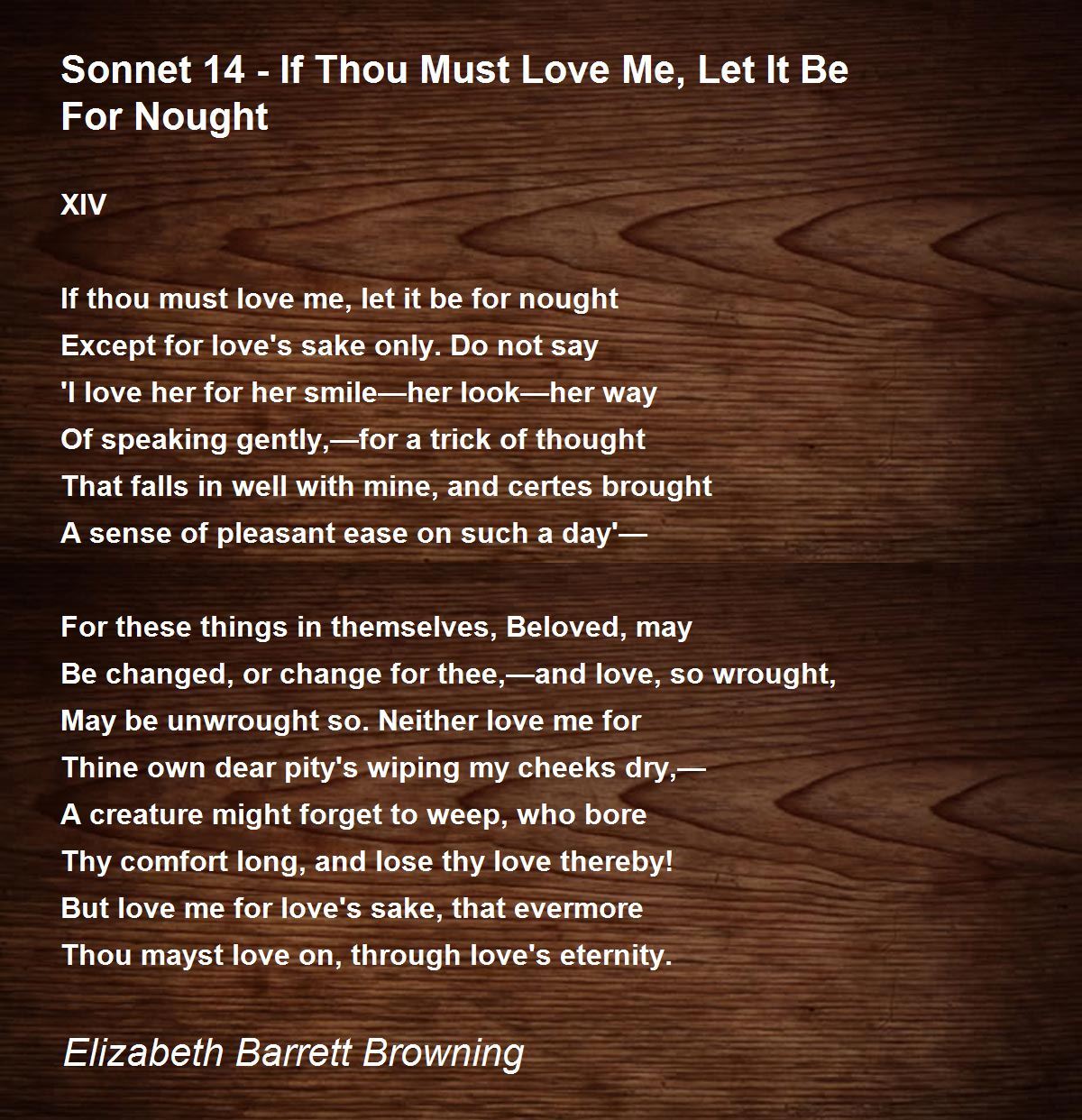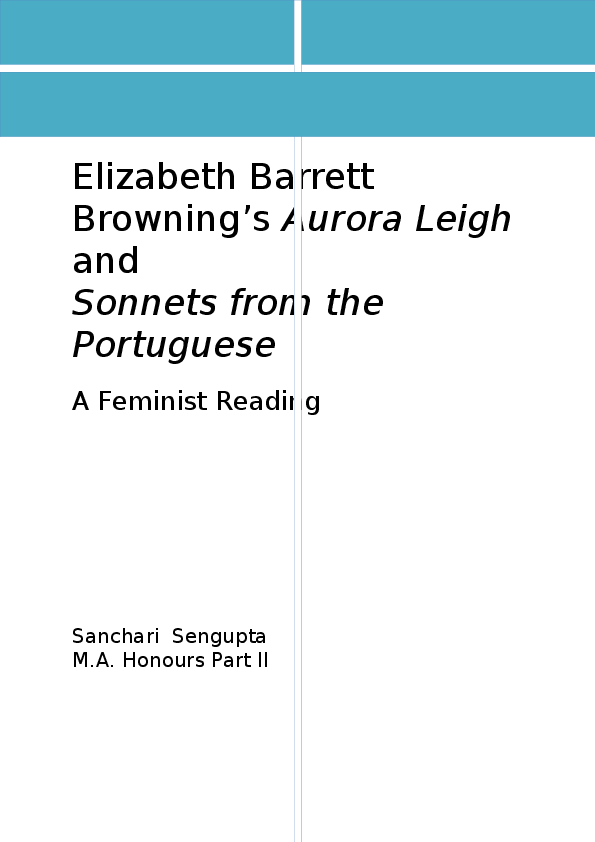

Thus, identical passages from Sonnets of the Portuguese can either be read as Barrett Browning’s revolutionary reworking of the sonnet form or as her passive acceptance of her role as a Victorian woman, depending on the reader’s frame of reference. However, this essay notes that Barrett Browning’s subversive manipulation of traditional Petrarchan metaphor also corresponds to the literal situation of Victorian women.

Barrett Browning retains her active nature through describing her own body as unattractive and maimed by illness, characteristics that forestall the dissection of her body in metaphorical language. For example, Petrarch relegates Laura to passivity through discussing her body in parts, composing elaborate metaphors about one single beautiful attribute at a time. In the sonnets Elizabeth Barrett Browning shows her love for her future husband Robert Browning, who himself was a great Victorian poet. Sonnets from the Portuguese is a collection of 44 love sonnets published in 1850. In her own sonnets, Barrett Browning manipulates these same conventions in order to prevent a similar objectification from happening to her. She was a major woman poet in the Victorian era (1830-1890) of English literature. The speaker's revelation that he will always be with her, even though she has sent him away. But as she continues, she shows just how close they already are. At first the speaker seems to be dismissing her lover. A close examination of Petrarch’s Rime sparse, the origin of the sonnet form, reveals the author’s use of poetic conventions to elevate his own subjectivity at the expense of objectifying and silencing the Laura of his poems. Elizabeth Barrett Browning's sonnet 6 from Sonnets from the Portuguese may be thought of as the seeming reversal of a seduction theme. This essay offers an explanation for the tendency of Sonnets from the Portuguese to polarize readers into camps that are either entirely positive or negative: the conflict between literal and metaphorical meaning exemplified by the text. Marianne Van Remoortel, University of Ghent


 0 kommentar(er)
0 kommentar(er)
